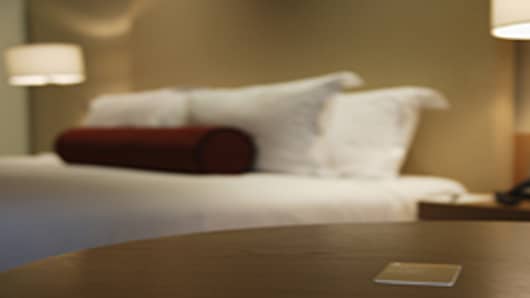Similarly, Craig Banikowski, president and chief executive of the National Business Travel Association, a trade group of corporate travel managers, said he expected that as the economy continued to improve and international travel costs rose, “we will see airlines and hotels wield more negotiating power.”
Many travel buyers “are already experiencing stricter contract terms and requirements, and we expect this to result in smaller corporate discounts going forward,” he said.
Mark L. Walton, a principal in Buffalo Grove, Ill., of Consulting Strategies, a travel management consulting company, said corporate airfare negotiations would be difficult because “the airlines have done a really good job of reining in capacity.” As a result, he said, “supply and demand are probably as efficient today as they ever have been.”
With airlines holding down capacity and filling their planes, Ms. Manning said she expected negotiated domestic coach fares to increase 2 to 6 percent next year and business-class fares on long-haul international flights to rise 3 to 7 percent. Carlson Wagonlit Travel also forecast increases of 3 to 5 percent on domestic coach tickets and 4 to 6 percent on international first-class tickets.
Ms. Manning said one way corporations can contain air travel costs is to require employees to buy advance purchase fares sold to the public. Egencia, the corporate travel arm of Expedia, estimated that these fares could save travelers 22 to 50 percent on flights to many popular business travel destinations.
Hogg Robinson Group, a business travel adviser, is telling its North American clients to use negotiated corporate rates for international travel, but to maintain their corporate deals on domestic flights and to buy advance purchase tickets, if possible.
“Our advice to clients is to use their domestic corporate rate as a default position, but to be open to the lower fare on the day of booking as well,” said Stewart Harvey, client management director at Hogg Robinson Group.
Recent consolidation in the industry — particularly the mergers of Continental and United along with Delta and Northwest, which have led to the strengthening of their Star and Sky Team global alliances — have given airlines even more leverage than before in corporate negotiations.
“If corporations want good discounts on their 2011 fares, they will have to concentrate their business with fewer carriers,” Ms. Manning said.
Mr. Walton said he expected airline alliances — which also include OneWorld — would “negotiate as a combined entity.” In the past, he said, “corporations negotiated individually with United, Lufthansa, American, British Airways. Today, they’re negotiating with two alliances.”
As for hotel prices, Bjorn Hanson, divisional dean of the Preston Robert Tisch Center for Hospitality, Tourism and Sports Management at New York University, said many travel managers believe they overpaid for hotel accommodations in 2009, when the average corporate negotiated rate rose 1.5 percent and the national average daily rate fell 8.6 percent. “The average corporate negotiated rate also increased more than the national average daily rate in 2008 and 2010, but not by as much,” he said, adding that travel managers want a minimal increase in negotiated rates next year.
But he said he did not expect they would get what they want. Rather, he predicted that the average corporate hotel rate would rise about 4 percent in 2011, with increases varying greatly. In New York, where demand has remained strong, he said he expected increases as high as 20 percent. Negotiated rates could also climb significantly more than 4 percent in other popular business travel destinations, like Atlanta, Chicago, Dallas, Detroit, Houston and Philadelphia, he said.
Smith Travel Research forecasts revenue per available room in these cities, as well as in New York, will jump 5 to 10 percent next year.
To hold down hotel spending in more expensive markets, nearly half of the companies in the United States will probably require some employees to downgrade from full-service to select-service hotels, Mr. Hanson said.
Hotel Internet fees have “become a piñata everyone is swinging at” in negotiations, said Andrew Menkes, chief executive of Partnership Travel Consulting in Princeton, N.J. “The elephant in the room in hotel negotiations,” Mr. Menkes added, is that major corporations are “barely getting 50 percent to 60 percent of their employees to book through their agency. They’re more likely to get a better rate in negotiations if they have effective control over their hotel program.”


